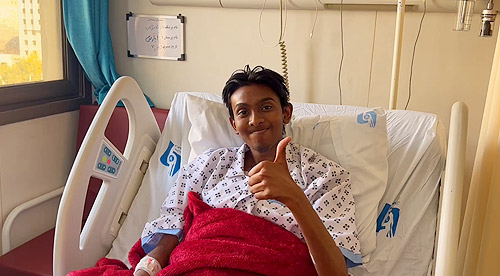Despite its competent medical professionals, the cost of renal transplant surgery in Iran is
among the lowest in the world.
The cost of surgery, pre-surgery preparations, post-surgery checkups and medications are
much lower compared to most countries.
The surgery costs 10,000 USD across all government hospitals in Iran.
Kidney transplant surgery package costs 14,000 - 19,000 USD.
We assist you with an affordable and convenient kidney transplant package in Iran. Make an
enquiry for a free quote & more information.
As kidney transplant surgery is a sensitive operation, in most countries, it takes a long
time to get the necessary approvals to perform the operation.
However, in Iran, the entire process will take 3-5 weeks:
pre-surgery preparations;
including
pre-surgery
checkups, medical & legal approval.
Minimum 7 to 14 days
Surgery
4-5 hours or more
Post surgery hospitalization
for the donor
Minimum 2 nights
Post surgery hospitalization
for the recipient
Minimum 7 nights
Post-hospitalization check-up in Iran
for the recipient
Minimum 7 days
This is for cases where neither the donor nor the patient are found to have any underlying
conditions. In this sense, the process in Iran is much quicker compared to most countries.
Best Hospital for a Kidney Transplant in Iran
Kidney transplant operation is crucially sensitive, both legally and medically. Therefore,
only a handful of specialized government hospitals are approved to perform surgery.
We have experience working with some of the finest hospitals that perform this surgery,
providing excellent medical care, in the shortest possible time.
We will help you choose the best hospital for your kidney transplant surgery in Iran.

